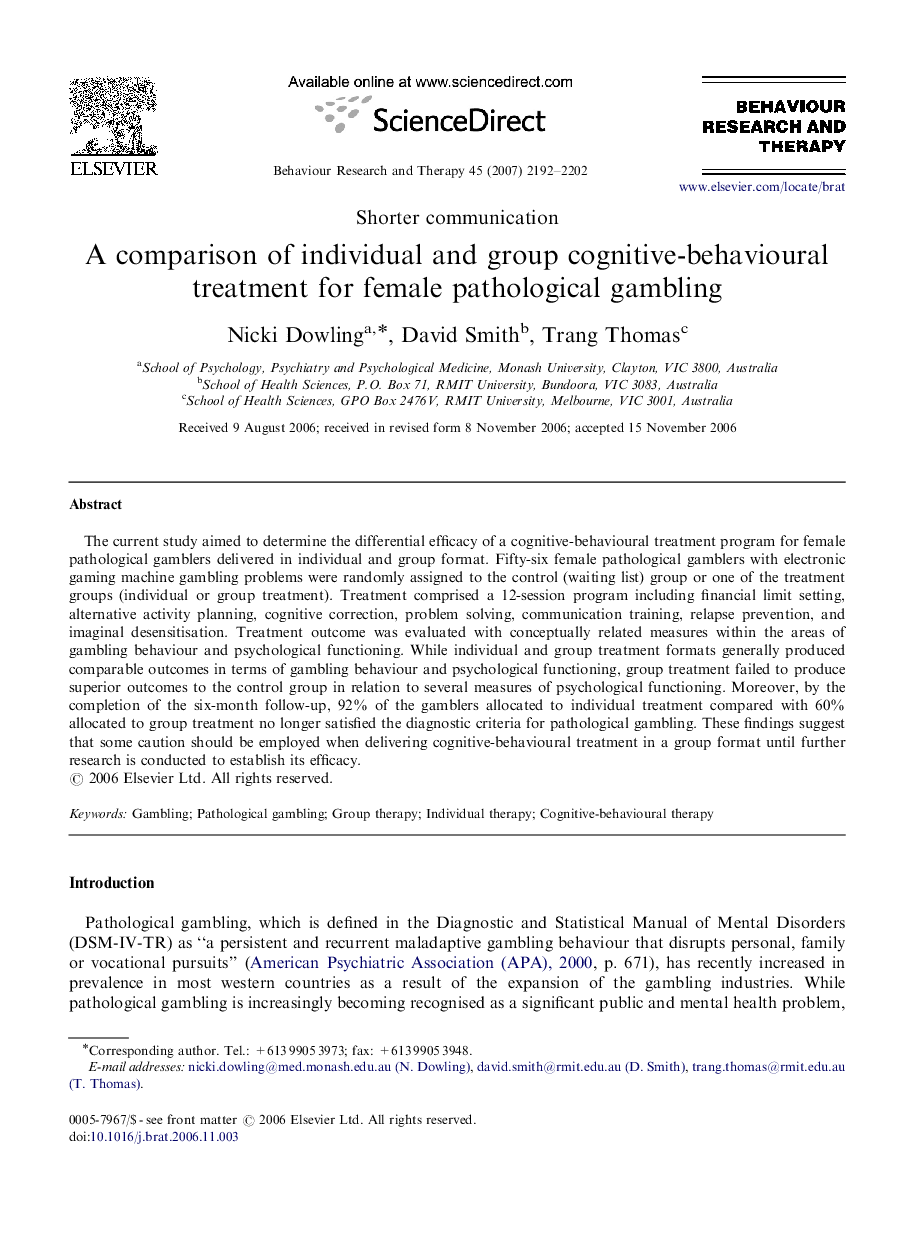| Article ID | Journal | Published Year | Pages | File Type |
|---|---|---|---|---|
| 10444821 | Behaviour Research and Therapy | 2007 | 11 Pages |
Abstract
The current study aimed to determine the differential efficacy of a cognitive-behavioural treatment program for female pathological gamblers delivered in individual and group format. Fifty-six female pathological gamblers with electronic gaming machine gambling problems were randomly assigned to the control (waiting list) group or one of the treatment groups (individual or group treatment). Treatment comprised a 12-session program including financial limit setting, alternative activity planning, cognitive correction, problem solving, communication training, relapse prevention, and imaginal desensitisation. Treatment outcome was evaluated with conceptually related measures within the areas of gambling behaviour and psychological functioning. While individual and group treatment formats generally produced comparable outcomes in terms of gambling behaviour and psychological functioning, group treatment failed to produce superior outcomes to the control group in relation to several measures of psychological functioning. Moreover, by the completion of the six-month follow-up, 92% of the gamblers allocated to individual treatment compared with 60% allocated to group treatment no longer satisfied the diagnostic criteria for pathological gambling. These findings suggest that some caution should be employed when delivering cognitive-behavioural treatment in a group format until further research is conducted to establish its efficacy.
Related Topics
Health Sciences
Medicine and Dentistry
Psychiatry and Mental Health
Authors
Nicki Dowling, David Smith, Trang Thomas,
